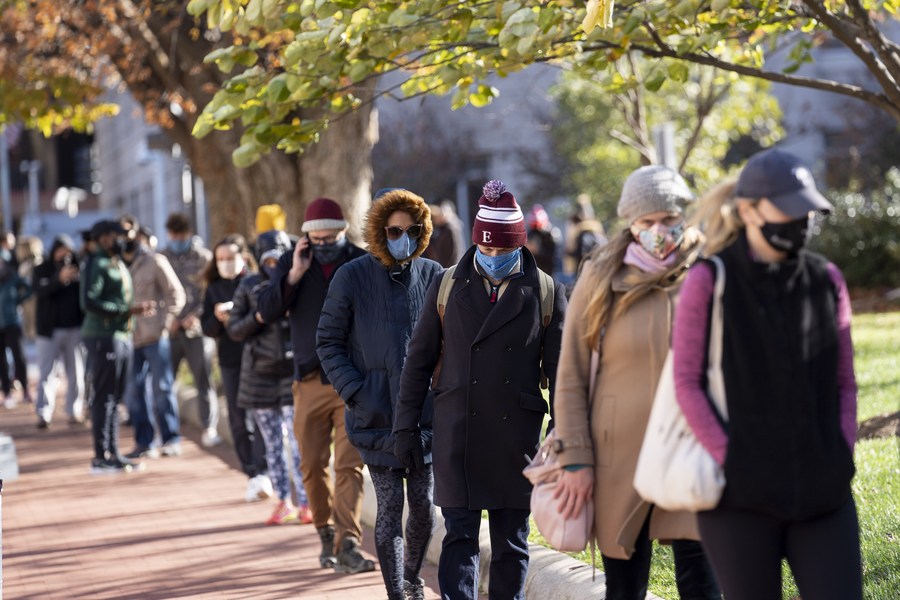
People wait in line to get tested for COVID-19 at a testing site in Washington, D.C., the United States, Nov. 23, 2020. (Xinhua/Liu Jie)
The researchers found evidence of infection in 106 of 7,389 blood donations from residents in nine states, which suggested that SARS-CoV-2 infections may have been present in the United States in December 2019, earlier than previously recognized.
WASHINGTON, Dec. 1 -- COVID-19 infections were present in the United States as early as mid-December 2019, weeks before it was first identified in China and about a month earlier than the first case was officially confirmed in the United States, according to a new study by the U.S. Centers for Disease Control and Prevention (CDC).
In the study published in the journal Clinical Infectious Diseases, CDC researchers tested blood samples from 7,389 routine blood donations collected by the American Red Cross from Dec. 13, 2019 to Jan. 17, 2020 for antibodies specific to the novel coronavirus, known as SARS-CoV-2.
The study aims to determine if SARS-CoV-2 reactive antibodies were present in sera prior to the first identified case in the United States on Jan. 19 this year.
The researchers found evidence of infection in 106 of 7,389 blood donations from residents in nine states across the United States.
Antibodies were found in 39 samples from California, Oregon and Washington state collected between Dec. 13 and Dec. 16, and 67 samples in Massachusetts, Michigan, Wisconsin or Iowa, and Connecticut or Rhode Island collected between Dec. 30 and Jan. 17.













